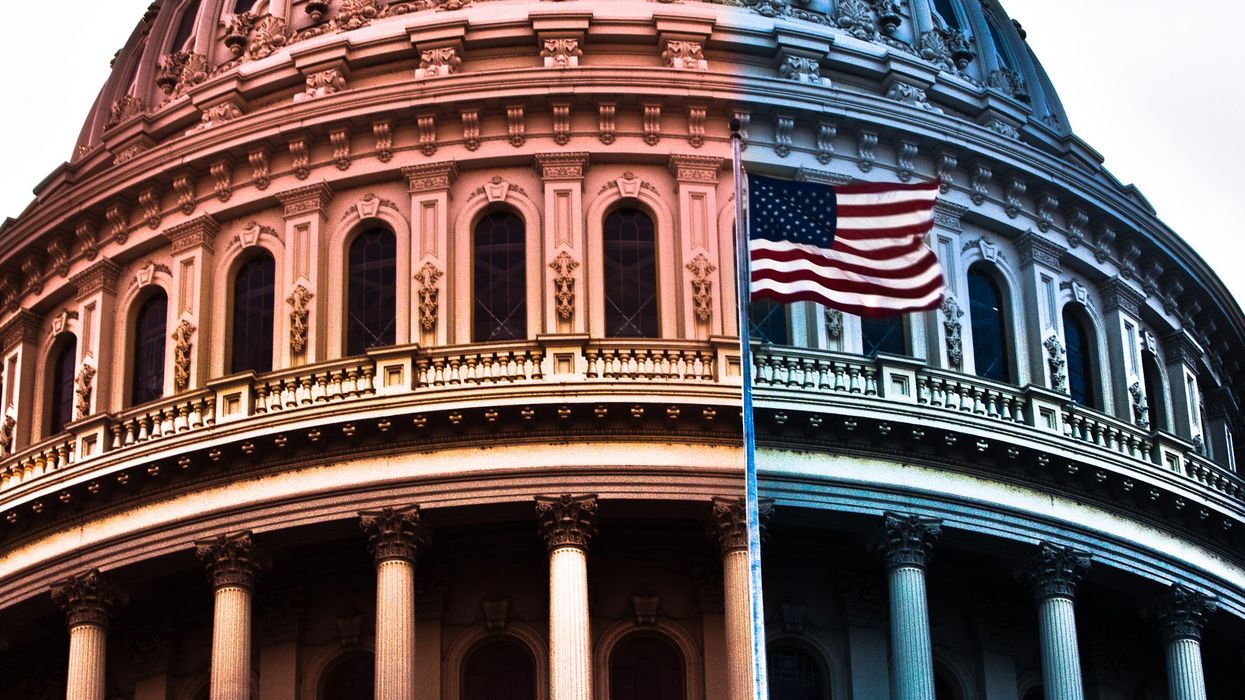Anderson edited "Leveraging: A Political, Economic and Societal Framework" (Springer, 2014), has taught at five universities and ran for the Democratic nomination for a Maryland congressional seat in 2016.
Gallup's fresh quarterly assessment of Americans' political leanings finds 44 percent of Americans regard themselves as independents. This is a remarkable statistic — especially because we are living in a time when traditional media and social media continue to hammer away at the claim that we are a nation that is polarized.
Our people are polarized and, the media's conventional wisdom holds, that is why they have sent politicians to Washington to engage in very little but horrific trench warfare — the policymaking equivalent of what happened when the Allies and Central Powers squared off in France for the first three years of World War I. Our Congress is simply acting out the polarization of its constituents, the theory goes, which of course makes it impossible for them to agree on plans to tackle almost every major issue.
How can this be, that we are a polarized people even though 44 percent regard ourselves as independents? It is not easy to provide a convincing answer. Although Gallup calculated that the share identifying as independents increased 4 percentage points since the final quarter of last year, it was also astounding that two out of every five citizens did not identify with either major party at the time of the presidential election.
Polarization theorists will tell you the vast majority of self-identified independents aren't really political free spirits — because their voting patterns clearly unmask them as red or blue, in the main. And the fresh numbers from Gallup, which has been taking similar measurements every three months since the 1980s, bears this out somewhat: Only 11 percent insist they have no partisan lean at all. But when pressed, 19 percent of the electorate identifies as independent but with a Democratic tilt and 15 percent reveal themselves as Republican-leaning independents. (The numbers don't perfectly align because of rounding.)
But conceding a leaning toward one party rather than the other — as opposed to claiming allegiance to one side — still says a lot. It may mean that millions of voters have decided that, in deciding to get behind a candidate who has a chance to win, they have ended up pointed most often toward the Republicans or Democrats.
OK, but where is the polarization in the electorate? Where is the fabled 50-50 split? Where is the straightforward statistic that explains the culture wars? Do we need another dozen surveys, asking the political identity question every possible way, to settle the point that we are not divided right down the middle — and maybe not even 55 to 45?
Nine out of every 20 adults do not profess to be either a Democrat or a Republican. This fact cannot be reconciled with the assertion the electorate is polarized, no matter how much you crunch data in an effort to prove otherwise.
What we do know is that the media loves a boxing match between two contestants. Many in the American political press corps — if they were sent to cover the governments of Britain or France or Germany, would get recalled for poor performance in a matter of months. That's because European parliamentary systems often rely on coalitions among as many as five parties, and American journalists who have only been trained to perpetuate the us-versus-them narrative would lack the nuance and the vocabulary and the syntax to explain such complex politics.
They would do better in Russia or China, with systems just as binary as ours. While we have two "small-d" democratic parties, they have autocratic regimes and dissenters. There are the voices of the system, and the voices of the powerless. Democratic and autocratic systems are extremely different, but they share an overall similar structure.
It is also true there are segments of both the Republican and Democratic parties that are loud and clear, even violent. These segments, probably two-fifths of the total electorate, are definitely polarized. Their voters have an intense identity conflict — even if they do not have an intense policy conflict — one that pits those who are threatened by highly educated whites, racial minorities and the LGBTQ community against working-class whites, rural whites, and large segments of the middle class and high-income whites.
Many academics and pundits have discussed the distinction between identity and policy issues, and there is surely some merit to the distinction. It is far from clear, though, that it neatly applies to all 240 million voters — even if it can explain a good deal of the tension between the extremists in the electorate, between the right-wing media and the left-wing media, and between many of the lawmakers at the Capitol.
Even recognizing the importance of the identity-versus-policy distinction, this still leaves all the people between the 20-yard-line "red zones" on the national political football field. Though they differ with those on the other side of the 50-yard line, they are not rigid and uncompromising and are not driven by issues of identity.
Many are moderates, and some are new centrists who want an ambitious synthesis of progressive and conservative values. Most hate gridlock and love bipartisanship.
One thing is plain, and underscored anew by the Gallup numbers released this month: It is time to put the polarization thesis about the American people aside. Washington is polarized. The people of the United States are not.




















